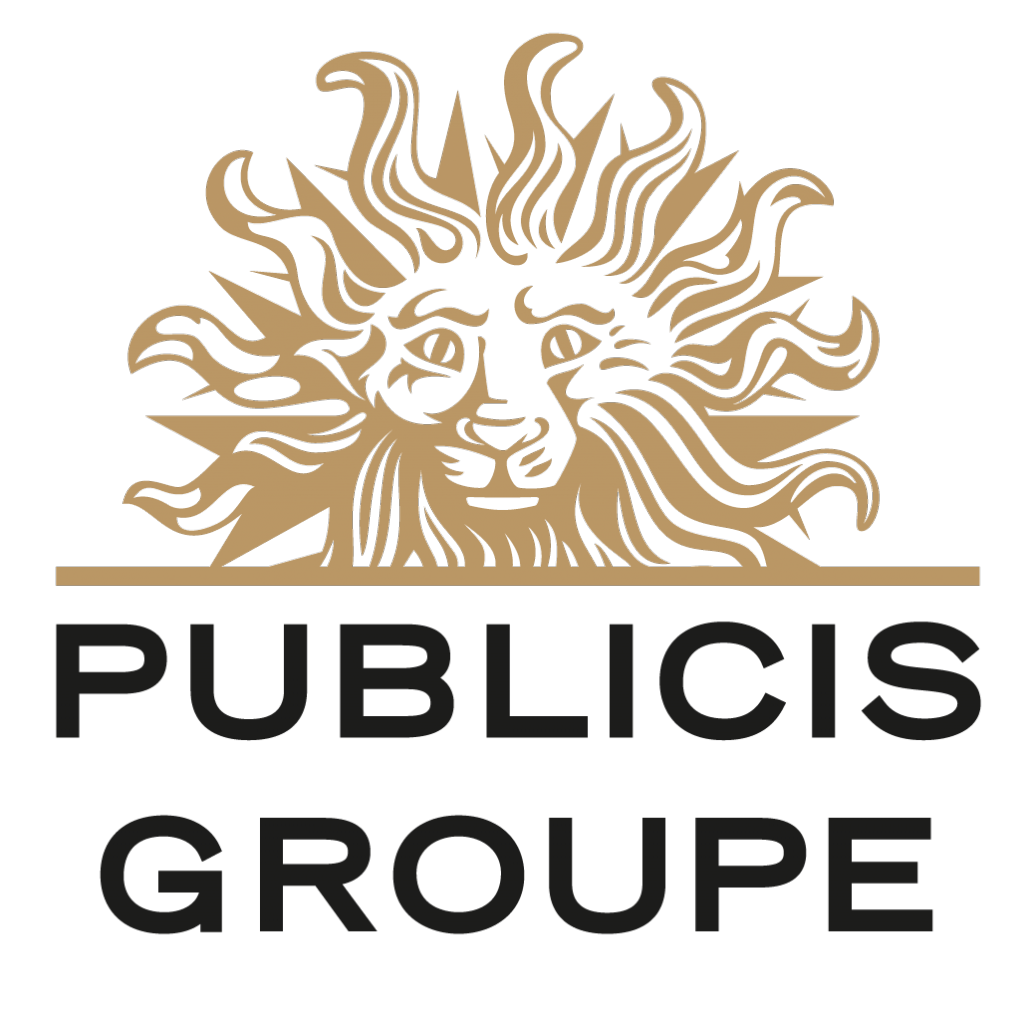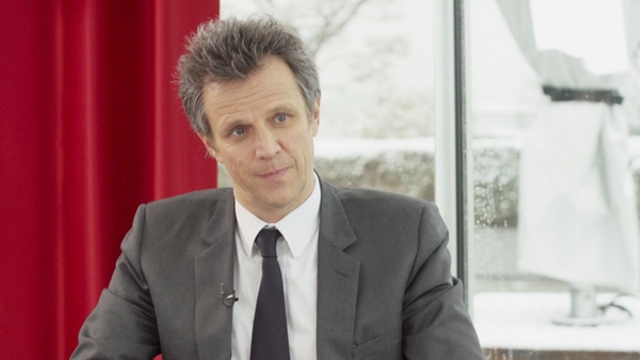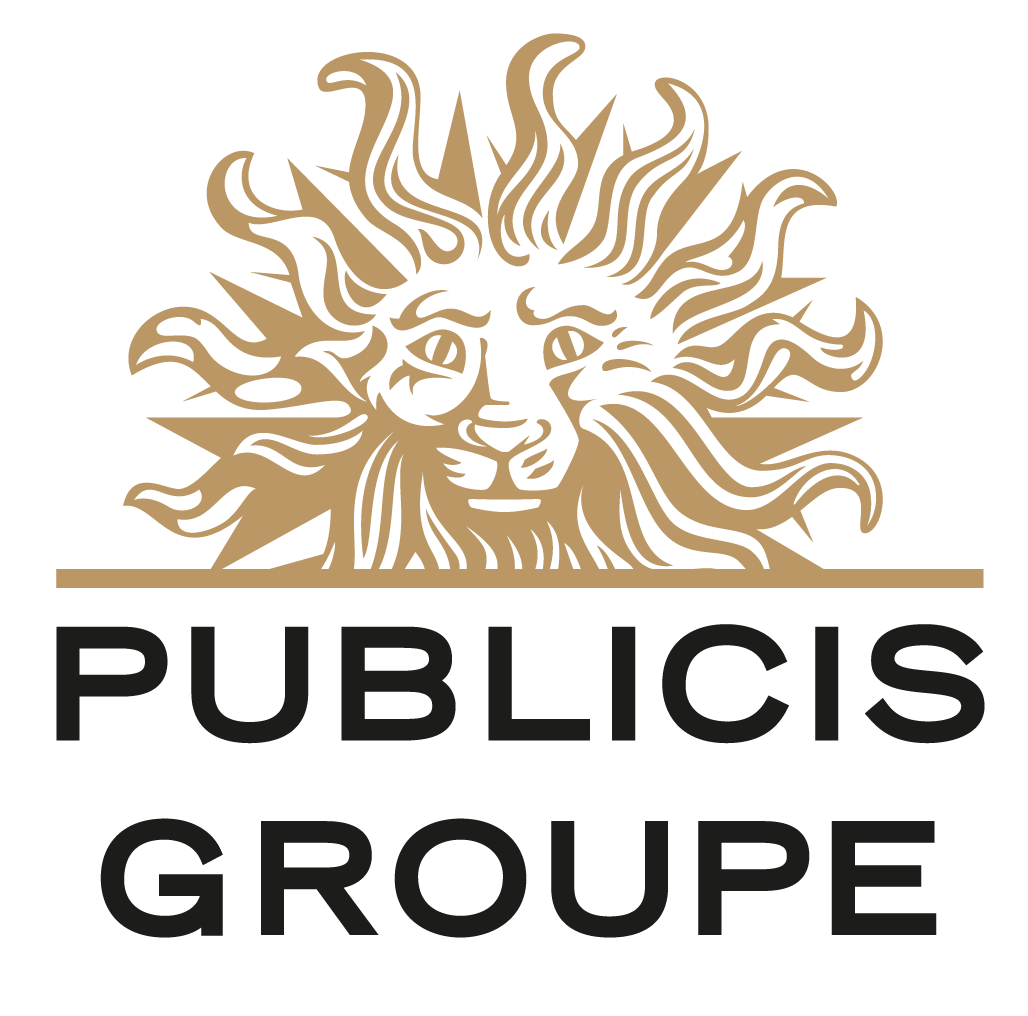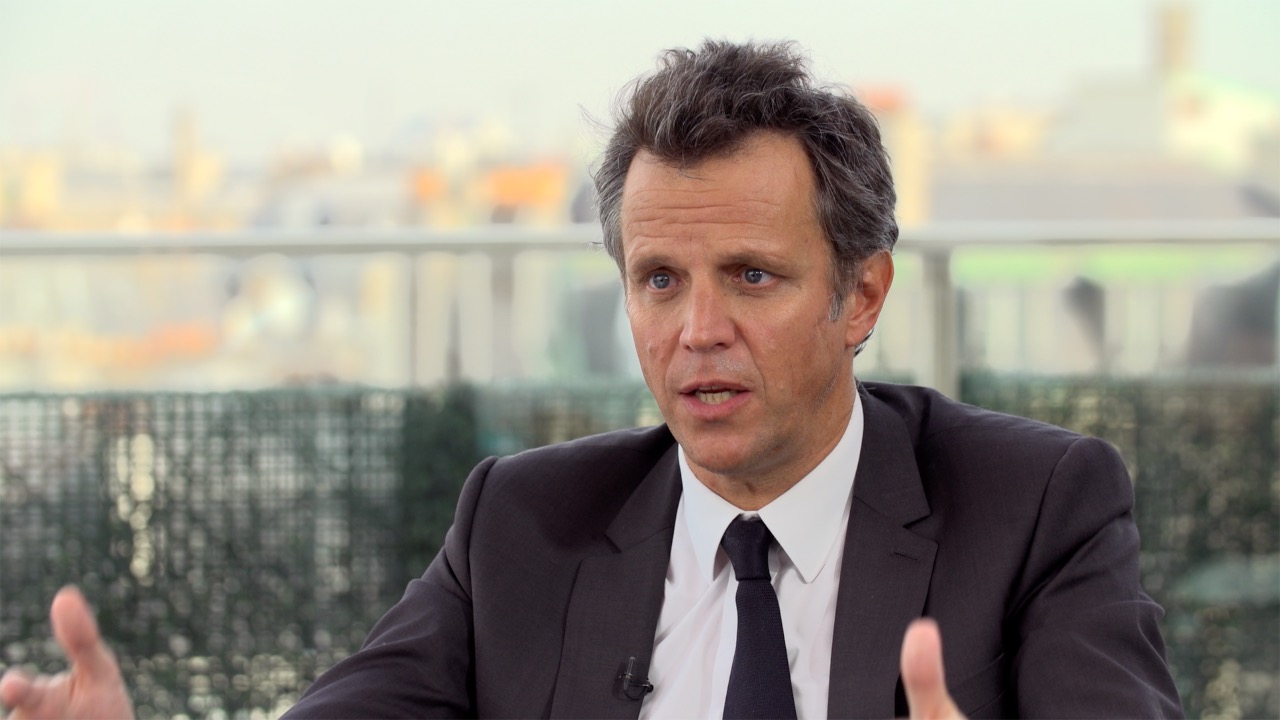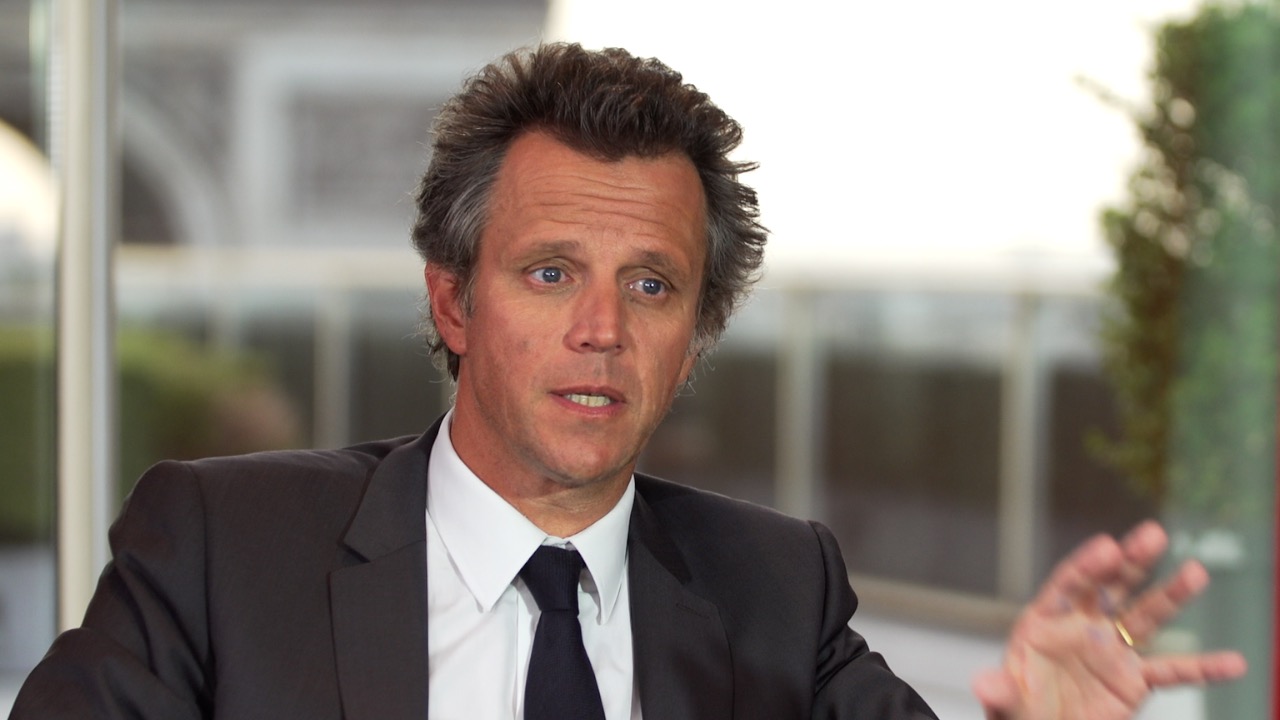EuroBusinessMedia (EBM): Publicis Groupe, the world’s fourth largest advertising company, just reported full-year results for 2008. Maurice Lévy welcome. What are your comments on the company’s overall performance in 2008? In particular, did business in the fourth quarter turn out to be better, or worse, than expected?
Maurice Lévy (ML): The market expectation is that the full market will drop by 7.4% for the fourth quarter and the result that has been posted by one of our competitors recently showed that he has declined by 7%. I’m pleased to report that our numbers are up by 1.1 % in organic growth and 5% in gross term. So we have a year that has been much better than the market was expecting. Organic growth for the full year is at 3.8% and more importantly there is very good news, which is the fact that we have been able to have a record year in terms of margin with 785 million euros of operating margin with a margin at 16.7% which is equal to last year and which is well above the expectations of the market. So we have for 2008 so far a good year. And all the other indicators, be they debt, debt to equity ratio, cash flow - everything has a total green light.
EBM: After successfully stopping the decline of your healthcare business in the 3rd quarter, have you now managed to reverse the trend on that segment?
ML: Yes, to the point that we expect some growth in 2009.
EBM: Is there any reason to worry that the 2008 dividend could be at risk in the current economic environment?
ML: We have just closed the supervisory board which has decided to propose to the AGM a dividend equal to that of last year. So we are one of the few companies in the world that will propose to the stockholders to vote a dividend equal to last year.
EBM: Heading into 2009, what are the main trends you observe in the main geographical zones?
ML: The problem in 2009 is the fact that it is probably one of the most unpredictable years I have ever seen in my life. There are a lot of uncertainties in the economy. We hear every day some bad news regarding the bank, financial institutions, some industry sectors who are facing some difficulties, so it is really something that is quite unusual in our industry. Most of the time we know - with a margin of mistake - how much we will be making, how the growth will be. 2009 is very, very difficult to predict. The market is expected to be at -1.5%. In that market, the US will be down by 6.3%. There is still good growth which is expected coming from China and there is some serious negative growth - if we can put these two terms together - in Germany 5.7%, in Spain 8%, in UK close to 5%. France is relatively stable compared to what they were expecting in December, which is -2%. The latest forecast indicates -1.9%. So all this is something which is not very comfortable. However, when we look at this year, there are a few things which are very interesting and which position Publicis as probably one of the possible winners of 2009. The first thing is that we have a relatively good experience in managing crises. It’s not something that we like, but it’s something that we had to do and we did manage all the crises, all the downturns, quite well and out of all these downturns Publicis became stronger. The second thing is that we are a highly flexible organisation and very fast to make decisions and quite fast at implementing those decisions because of a tight management group with a great degree of solidarity between the members. Also the fact that we are sharing all the decisions – it’s not a one man show – and we are sharing the decision “Are we going to do that?” and like a rugby team, we are a pack and we work together. So we feel that we will be in a relatively good position. We have a portfolio of clients; with more than 50% of our clients we are in the resilient sectors. We have two areas of growth and if there is growth it will be in these two areas. So if there is any growth that will happen next year it will be in digital and emerging markets. We are leading our industry in digital and we are the second in emerging markets. So this gives us a reason to believe that we will be able to manage quite reasonably next year.
EBM: What trends are you seeing in the main industry sectors?
ML: Here also it’s relatively difficult to predict because we know that the sector of automotive is damaged, the financial sector is seriously damaged also, healthcare is starting to come back and we may see some consolidation which could be relatively positive for people like ourselves who are one of the leaders of the market. We see also some positive aspects with consumer goods, retail, where we hear from all the CEOs that they don’t want to cut, because they have experienced cuts in the past and when in the past crises they have decided to cut their marketing expenditure, the issue at the end is fairly simple; they have lost market share. And to regain this market share it has cost them much more. So they are much more cautious and they think that this area will be strong, and maybe even stronger.
EBM: In June, you launched VivaKi, regrouping PGM and Digitas. Can you begin to tell us the first tangible results of that strategic move, especially in terms of economies of scale?
ML: We have invested in VivaKi, so the first phase was exactly what we expected - to see some revenue synergies - and that this will help us to grow faster, which is the case. We will start seeing the synergy of cost later, this will happen in the second half of 2009. The first twelve months were devoted to creating something new, we invested in new skills, new talent, in new areas, and particularly in measurement and analytics. So we have developed tools and we have hired people. We have also bought Performix, which is really putting us in a position of global leader. So all this is very positive and I’m very confident.
EBM: How much more room for manoeuvre do you still have, in terms of cost-saving, in order to preserve your operating margin?
ML: We have a culture of managing cost, we are coming from family business roots, so these are the businesses where you don’t spend more than what you have in hand and most of the time you spend less. And these are our roots, this is our culture and we have always been very cautious. We have a few areas in which we are investing today in order to generate cost saving. The first thing is that we are very good at having some shared services and we are moving from shared service by country to regional shared service. The first one will be Costa Rica for the Americans. The second thing that we are doing is to accelerate the two-door operation, which is putting together two agencies in small markets where the market really doesn’t need so many agencies. The third thing that we are doing obviously is to manage all our costs. We have 8% of the revenue which are salary costs which are invariable. So we are adjusting according to the needs, according to what the client needs and to our projects. So therefore we can adjust as the business comes and goes and this is something which is not that easy to do but relatively easy to manage with very short notice. So we have a degree of flexibility which is probably one of the best in our industry, thanks to our organisation. The last thing is that we have obviously given some instructions over the last few months to be very cautious with all the costs, either the costs we can manage and we can control or the extra costs or the investment that we can do which can be postponed. We believe that if the market is going down we will certainly see a deterioration of our margin, but we will still be able to control that deterioration and we will certainly deliver the best margin of the industry and probably by far.
EBM: What is your general outlook for 2009 and what sort of guidance can your give your market today? For example, do you confirm that you will keep the group’s 2009 operating margin roughly in line with 2008?
ML: 2008 has been a staggering year because we started the year with the idea of this quadrennial year - that we would have the US election, the Olympic Games, the European football cup - and all this would lead to extra growth, etc. The reality has been very different. For 2009 I would have very much liked to answer your question with some precise numbers; unfortunately I forgot my crystal ball. So I will just give you a few ideas. We will do our best to keep our margin as high as possible. Obviously to keep the margin as high as possible, the key will be the revenue and how much growth we can expect. The only thing I can say currently without making false commitment, is that based on what we know and based on the new business, we have been very good with new business last year, the beginning of the year is absolutely formidable, so we should contain the reduction of the market and we should be in a position to have one of the best rates of the industry in terms of growth, if there is growth, or in terms of deterioration of the growth if the market is on the downturn. For the margin obviously there will be a small impact and our task is to manage the impact in order to reduce it to the minimum.
EBM: And finally, you just won a very large new budget: the supermarket chain Carrefour. What made Publicis Groupe so attractive?
ML: I think that there are a few things which are quite interesting with Publicis. Not only are we N° 1 in creativity at the Gunn report or N° 2 at the Cannes Festival, which by the way, due to our size means a lot because we are two times smaller than any of the large groups - Omnicom or WPP to name them. So that is one aspect. We are recognised for our creativity. We have something which is quite unique which is a very strong commitment of the teams. We have absolutely formidable people who have an appetite and a hunger to find new ways, new ideas, who are very imaginative, find new solutions for the client and solutions that are effective and efficient. We have this unique position in digital which is really making us a first choice, because if people want to be modern and to speak to a young audience or to reach and connect with the audience of today and tomorrow, they really need to go to us. And the last thing is that we can find solutions which are quite unique. We have experience with Samsung for example, a management type solution which includes various operations, Leo Burnett, Arc, Starcom, Digitas, working all together in the interest of the client. For Carrefour, we already handled the account in the past in France, but we still continued to handle the account in some countries and when the new management came on board the decision was “OK, how can I move to the next level?” and they made their internal review, they saw what was going well, what was going wrong. It happened by accident that what was going well was in our camp. And they decided that the good thing was to go through a new area, a new landscape with a new approach and what we did was to simply offer the possibility of using, whenever and wherever they need, the best of the Publicis Groupe. So in some areas they will be served by Leo Burnett, in some other countries by Publicis, in some other countries by Saatchi & Saatchi and maybe in some by a combination of two of the agencies. Plus Digitas. All this is making our offering very, very attractive. And the idea that there is no silo and there is no ego is an idea which can be really borne by us.
EBM: Maurice Lévy, CEO of Publicis Groupe, thank you very much.
ML: Merci

